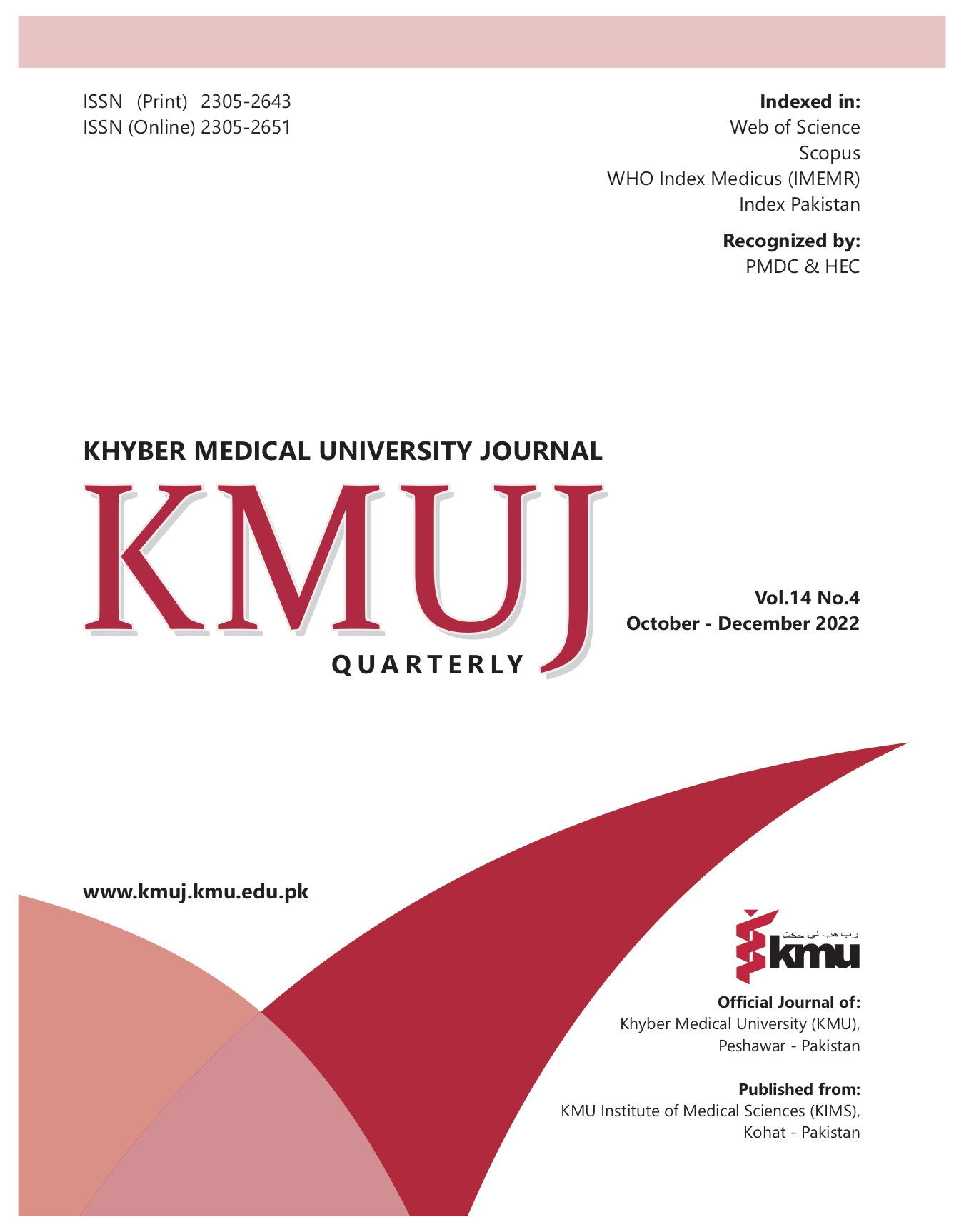ROAD-MAP FOR CONDUCTING MEDICAL EXAMS IN RESOURCE LIMITED COUNTRIES DURING COVID-19 PANDEMIC
Main Article Content
Abstract
The COVID-19 pandemic has adversely affected medical education worldwide. Developed countries have successfully managed this by adopting modified ways of teaching and assessment and utilizing their resources but low income countries have struggled in managing the challenges they have faced in teaching and assessment. Medical exams have been postponed multiple times because of no clear way forward due to limited resources. This has not only resulted in wasting of the time of students but also adds to desperation and frustration of the students as well as teachers and institutes. Newer modes of information transfer including E-lectures, pre-recorded videos, simulation based learning and assessment (Kahoot, Socrative etc) have been introduced over the past two years. This paper illustrates a modified model for medical exams which may prove a suitable alternative for low income countries during pandemic.
Article Details
Work published in KMUJ is licensed under a
Creative Commons Attribution 4.0 License
Authors are permitted and encouraged to post their work online (e.g., in institutional repositories or on their website) prior to and during the submission process, as it can lead to productive exchanges, as well as earlier and greater citation of published work.
(e.g., in institutional repositories or on their website) prior to and during the submission process, as it can lead to productive exchanges, as well as earlier and greater citation of published work.
References
Kamentez A. (2020) “Panic-gogy”: teaching online classes during the coronavirus pandemic. March 19, 2020 [Internet]. Accessed on: February 21, 2022. Available from URL: https://www.npr.org/2020/03/19/817885991/panic-gogy-teaching-online-classes-during-the-coronavirus-pandemic
Hassan B, Shati AA, Alamri A, Patel A, Asseri AA, Abid M, et al. Online assessment for the final year medical students during covid-19 pandemics; the exam quality and students’ performance. Onkol i Radioter 2020;14(6):1-6.
Monaghan AM. Medical Teaching and Assessment in the Era of COVID-19. J Med Educ Curric Dev 2020;7:238212052096525. https://doi.org/10.1177/2382120520965255
Wayne DB, Green M, Neilson EG. Medical education in the time of COVID-19. Sci Adv 2020;6(31):4-6. https://doi.org/10.1126/sciadv.abc7110
Lederman D. Will Shift to Remote Teaching Be Boon or Bane for Online Learning. Inside Higher Ed, 1-27. 2020 [Internet] Accessed on: February 21, 2022. Available from URL: https://www.insidehighered.com/digital-learning/article/2020/03/18/most-teaching-going-remote-will-help-or-hurt-online-learning
Gado AS, Khater RA. Conducting a medical examination in the COVID-19 era: an Egyptian experience. Egypt J Intern Med 2021;33(1):9. https://doi.org/10.1186/s43162-021-00038-z
Tan CK, Chua WL, Vu CKF, Chang JPE. High-stakes examinations during the COVID-19 pandemic: To proceed or not to proceed, that is the question. Postgrad Med J 2021;97(1149):427-31.
Rodrigues CMC, Plotkin SA. Impact of Vaccines; Health, Economic and Social Perspectives. Front Microbiol 2020;11:01526. https://doi.org/10.3389/fmicb.2020.01526
Fernandes Q, Inchakalody VP, Merhi M, Mestiri S, Taib N, Moustafa Abo El-Ella D, et al. Emerging COVID-19 variants and their impact on SARS-CoV-2 diagnosis, therapeutics and vaccines. Ann Med 2022;54(1):524-40. https://doi.org/10.1080/07853890.2022.2031274
García YE, Mery G, Vásquez P, Calvo JG, Barboza LA, Rivas T, et al. Projecting the impact of Covid-19 variants and vaccination strategies in disease transmission using a multilayer network model in Costa Rica. Sci Rep 2022;12(1):1-9. https://doi.org/10.1038/s41598-022-06236-1
Papapanou M, Routsi E, Tsamakis K, Fotis L, Marinos G, Lidoriki I, et al. Medical education challenges and innovations during COVID-19 pandemic. Postgrad Med J 2022;98(1159):321-7.
Bernard A, Indig G, Byl N, Abdu AN, Mengesha DT, Admasu BA, et al. COVID-19 and medical education in Africa: a cross sectional analysis of the impact on medical students. BMC Med Educ 2021;21(1):1-9. https://doi.org/10.1186/s12909-021-03038-3
Barteit S, Guzek D, Jahn A, Bärnighausen T, Jorge MM, Neuhann F. Evaluation of e-learning for medical education in low- and middle-income countries: A systematic review. Comput Educ 2020;145:103726. https://doi.org/10.1016/j.compedu.2019.103726
Barrot JS, Llenares II, del Rosario LS. Students’ online learning challenges during the pandemic and how they cope with them: The case of the Philippines. Educ Inf Technol 2021;26(6):7321-38. https://doi.org/10.1007/s10639-021-10589-x
Khan A, Egbue O, Palkie B, Madden J. Active Learning: Engaging Students To Maximize Learning In An Online Course. Electronic J e-Learning 2017;15(2):107-15.
Kusnoor AV, Falik R. 2013. Cheating in medical school: The unacknow-ledged ailment. South Med J 106(8):479–83. https://doi.org/10.1097/smj.0b013e3182a14388
Meccawy Z, Meccawy M, Alsobhi A. Assessment in ‘survival mode’: student and faculty perceptions of online assessment practices in HE during Covid-19 pandemic. Int J Educ Integr 2021;17(16):1-24. https://doi.org/10.1007/s40979-021-00083-9
Boursicot K, Kemp S, Ong TH, Wijaya L, Goh SH, Freeman K, et al. Conducting a high-stakes OSCE in a COVID-19 environment. MedEdPublish 2020;9(1):1-8. https://doi.org/10.15694/mep.2020.000054.1
Darling-Pomranz C, Gray J, Watson C. Undertaking a face to face Summative OSCE assessment during the COVID-19 Pandemic - a descriptive narrative. MedEdPublish 2020;9(1):1-7. https://doi.org/10.15694/mep.2020.000244.2
